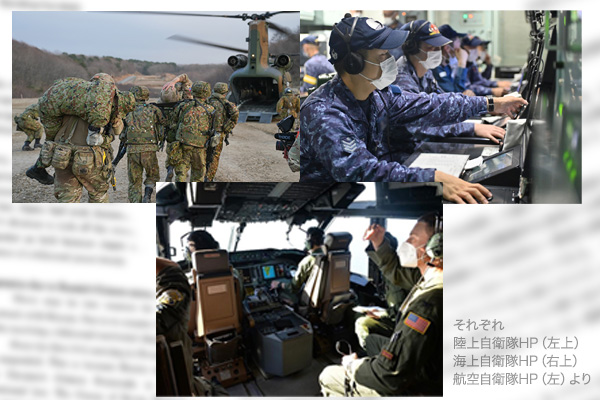Prime Minister Fumio Kishida has repeatedly vowed to amend the constitution during his term. His term as president of the ruling Liberal Democratic Party ends in September next year. By then, a constitutional amendment proposal has to pass both houses of the National Diet by a two-thirds majority and obtain a majority at a national referendum. There is not much time left. The time has come to determine which specific clauses should be revised.
The LDP has proposed a four-point amendment: (1) to stipulate the existence of the Self-Defense Forces, (2) to strengthen a response to emergencies, (3) dissolution of combined electoral districts for the House of Councillors, and (4) to improve education. Kishida has not clearly stated what will be included in the initial constitutional amendment proposal, and some believe that an emergency response clause, the discussion of which is making progress between ruling and opposition parties, should come first. I don’t agree with that. The SDF stipulation must never be excluded.
Face the crisis of war on a global scale
Russia, a permanent member of the United Nations Security Council responsible for the international peace, has launched a war of aggression against Ukraine. Israel is exercising its self-defense right against a brutal sneak attack by a terrorist organization. The Chinese Communist regime could use force against Taiwan at any time. Since a Taiwan contingency is a contingency for Japan, the first defense operations under the current constitution, that is, the use of force by the Self-Defense Forces, could be soon. Naturally, there will be those killed in action. In the midst of such a global war crisis, Japan’s constitution still contains only a negative sentence stating that “land, sea, and air forces, as well as other war potential, will never be maintained” (Article 9, Paragraph 2), and does not mention the SDF at all.
In 2017, then Prime Minister Shinzo Abe proposed adding a clause specifying the existence of the SDF while leaving the no-war-potential clause unchanged. At the time, some members of the LDP and conservative private groups argued that an emergency response clause should be prioritized in the first constitutional amendment initiative, partly due to fierce opposition over even the limited approval of the exercise of collective self-defense right. Abe’s proposal was a rebuttal to that, and on the basis that the junior coalition partner Komeito party had advocated an addition of necessary clauses without changing current articles, Abe proposed the stipulation of the SDF in the constitution with the intent to protect the honor of the SDF members. After this was achieved, of course, Abe was considering amending Article 9, Paragraph 2 and specify the possession of the official national army.
Honor to SDF members who risk their lives
The members of the SDF pledge “to face any situation without fear of danger, to devote myself to the fulfillment of my duties, and to respond to the trust of the nation.” The way to reward SDF members who risk their lives is to give them honor. Isn’t it too disrespectful to them if the country were to order them to continue to risk their lives for the country while avoiding stipulating the SDF in the constitution in the first constitutional amendment proposal? In order to honor the SDF, politicians and we in the private sector must not shy away from the struggle to stipulate the existence of the SDF in the constitution.
Tsutomu Nishioka is a senior fellow and a Planning Committee member at the Japan Institute for National Fundamentals and a specially-appointed professor at Reitaku University.


